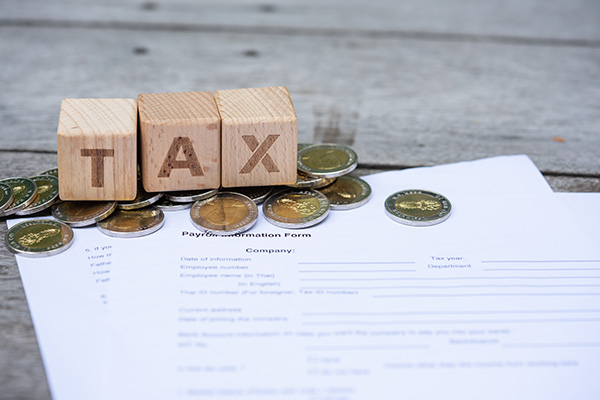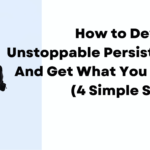
How would you like to save multiple thousands of dollars? Jack Gibson talks about taxes and how to save (without screwing yourself over).
—
Table of Contents
Listen to the podcast here
Four Strategies That Could Save You 10 Thousand Dollars
How would you guys like to save multiple thousands of dollars from reading this episode for ten minutes? Maybe fifteen tops. I don’t know how long this is going to take me, but it’s not going to take long because I have got a golf outing at Warren Dunes, a nice course down in South Bend, Indiana, and I want to get out of here and go golf because I have been in here for three straight days working.
Let’s save you some money. I hate to say the word taxes because I know that’s either going to put you to sleep potentially, or you are going to tune out, but that’s up to you. If you don’t want to save $10,000 from reading this, that’s totally your call. I’m going to go through four strategies that I’m confident that if you put into place, you are going to have pretty substantial tax savings.
It could be as much as $10,000 depending on how much money you make and what tax bracket you are in, but these are things I don’t think you probably know about. These are called scorecard tax strategies. Why are they are called that? I don’t know. Let’s go with it. This is what my tax strategy team called them and told them to build me to call.
I love saving money. I love building wealth. I have said this on my platform multiple times. The biggest expense of your lifetime by far is going to be taxes, without any doubt. It’s going to be bigger than any other expense that you ever have, including your home, your automobile, your food, and anything possible. That is going to probably be more than all three of those combined. We want to do everything we humanly possibly can to minimize legally and ethically the taxes that we are paying.
The biggest expense of your lifetime by far is going to be taxes. Share on XYou’ve got to know the tax law and tax strategy to be able to do that. I have paid a lot of money for this particular information and I’m passing it on to you for free. I do ask one thing back from you in return. If you find value in this episode, that if I have helped you and blessed you in some way, because I’m sharing knowledge that I have paid handsomely for, that you go on.
Give a five-star review, put some words of praise on there that will warm my heart, and share the show. That’s the only way I’m going to grow this thing. If I deliver great value and great content, then it gets shared. If I don’t, then it doesn’t and I don’t grow it. That’s the way it goes. A show doesn’t grow that much from advertising. It’s mostly grown organic.
The Augusta Rule
First off, this one you probably don’t know about, it’s called the Augusta Rule. Essentially what this rule says is that you got to have a business to do this one. If you are an employee, this isn’t going to work. If you have a business then what you can do is set the business to rent twelve times a year, once a month, your business can rent. This is where it gets a little hard to comprehend, but you are talking about entities.
Your business is going to rent the use of your home for business use. Now, you are going to say, “How do you get to deduct that? That doesn’t make sense.” I’m going to tell you how exactly. Let’s say that you would go out. You have a corporation like an LLC or an S Corp in order to do this. Maybe I’m wrong. This is something where you need to talk to your accountant and if they don’t know, then you potentially might want to look for a different accountant if they are not willing to look into it and help you to take advantage of this deduction because your accountant is there for you to help you to maximize your tax savings.
A lot of times, they are not scouring the tax code. They can’t keep up. It’s not to say that they are not good at what they do. It’s tough to keep up with all the tax, all in all, and some of the intricacies of it. A lot of them are struggling to keep up. Beyond that, doing research and all that into how to save you money. That’s not what they are focused on doing. They are going to take the information that you give to them and plug it into the return and here’s the amount of taxes you either have coming back to you because you overpaid or that you owe because you didn’t pay enough in and you made too much money, which that’s a great problem to have.
I love paying more in taxes because that means I made more money, but I don’t want to pay more than I should pay in taxes. Get me? You are going to be able to rent out your home. In a normal corporation, you would want to have a meeting of the board once a month. That’s the pretty standard operating procedure for any type of corporation. You have to rent out a space and normally you’d rent out a board room or a conference room at a hotel if your business is based at a home or you don’t have a conference center at your brick-and-mortar location.

Tax Strategies: Paying more in taxes means you made more money, but you shouldn’t have to pay more than you should in taxes.
Let’s say you spend an average rate. You get some quotes for various conference rooms inside hotels around your city and the average rate is $1,000 for easy math. You are going to get three quotes. You are going to document those quotes, and you are going to take the average of the three. That’s the number that you are going to utilize as your rental rate.
It could be with your spouse, key players, or your team, but you are having a meeting of the board at your home instead of at the conference center. You document that. You take meeting notes and it’s a legitimate meeting that you have. You could sit down with your spouse and you are strategizing, “How did the month go? What do we want to do next? What’s our plan for this coming month?”
A good framework for the meeting is about what’s working, what’s not working, and what our opportunities for growth are. Those are the three questions that would be pretty easy to go on to create your strategic minutes. You take the meeting minutes, you document them, and you’ve got the average of the three quotes. You are going to write a check from your corporate account or your business account to you personally.
$1,000 is going to be written from my corporation and that’s going to be written to me personally. Now, here’s where the kicker is. This is where it’s awesome and this is the Augusta Rule. You get to deduct that from your business tax return. It becomes a legitimate straight-line expense. You are going to save. You are taxed for easy math. You are paying 50% in taxes on your corporate return.
It’s not going to be that high, but for easy math. On a $10,000 or $12,000 that you paid for rent, so $1,000 a month for 12 months. That’s $12,000 in a legitimate expense that’s coming out of your corporate checkbook to you personally. Now, the kicker is that you would think normally you’d have to report that $12,000 as income on your personal tax return. However, with this law, you do not.
This is the beauty of this law. You get a phantom deduction of money that you didn’t spend. In this hypothetical math situation, with $12,000 deducted, you normally pay 50% in taxes. That’s a straight $6,000 that you save off your taxes that you don’t have to pay in. My guess is for most of you when you run the math, that’s going to be probably somewhere in the $3,000 to $5,000 savings off this one thing that I’m teaching you right now. That’s the first one.
Hire Your Kids
The second one is the Higher Your Kid’s Strategy. You got to work with your accountant on this, but you are going to be able to pay your children who are minors. You are going to be able to pay them a set amount each month for jobs that they do for you to help your business. To give you an example, when my kids were little and they were pretty worthless, we put them as models.
We did a photo shoot. We documented that. We paid them to do the photo shoot and essentially not paid them, but we set up two separate accounts in their name. We were the ones in charge of the account, but we would make payments and write a check into that account. We utilize and you have to utilize all of that money that goes into that account for expenses for your children.
Here’s the kicker when you make that payment. Let’s say you pay your kids $10,000 for the year. You get to deduct the $10,000 from your taxes. If you pay 50% in taxes, there are $5,000 in deductions. However, again, it’s more of a phantom deduction because the money is going into your kids’ accounts. They are not paying taxes on that. You are not paying taxes on that $10,000, and then you utilize that for the little boogers, which you are going to spend money on them probably ten times more than that anyways. You get a deduction. Win-win. You get additional savings on your tax return. You guys put another few thousand dollars back into your pocket instead of sending it off to the IRS.
One of the keys to building wealth is debt. You need to be able to utilize debt to be able to purchase things that you need, especially a primary home. You don’t want to be paying that in cash. You want to be utilizing a mortgage to do that. Generally, with low-interest rates, in all likelihood, you want to be buying your cars with debt. I do.
One of the keys to building wealth is debt. You need to utilize debt to be able to purchase things that you need. Share on XThe interest rates are so low. It’s insane to me to tie up multiple thousands of dollars in cars that I could get debt for 3% interest on almost free money. Beyond that, you want to be utilizing debt to be purchasing cashflow-producing assets that are going to make you wealthier. To order to do that, not only do you have to have good credit, but you got to have a strong tax return. We have friends that are going to buy a new home. They deserve it. They have increased their income. They are doing fantastic. They are going to be able to get the deal done, but it’s making it more challenging to pay less down in cash. They were very aggressive on their tax returns. They saved taxes.
You got to think that through. You don’t want to be overly aggressive to where you write your income down so low that you are not showing any substantial income on your tax return to where you are going to then kick yourself later because now you can’t get a loan. You got to think through the long-term ramifications of doing this. I want to make sure that you are thinking through all the scenarios.

Tax Strategies: You don’t want to be overly aggressive, where you write your income down so low that you’re not showing any substantial income on your tax return, to where you’re going to kick yourself later because now you can’t get a loan.
Home Office
The third thing is that you are going to use the home office expense. You work out of your home like a home office. You then are going to be able to deduct a certain percentage of the overall expenses that you pay for your house. What you have to do is measure the total square footage of your home. You can do this pretty easily if you have a copy of your survey or your floor plan. If you are not that organized, then you are going to have to do some measurements to be able to figure out what the total percentage is.
Let me give you an example. If your home measure is 50 feet across the front and 35 feet front to back, you are going to multiply those two numbers. That’s going to give you 1,750 square feet on your house. If you have a second floor with the same dimensions, you’ll double that number. That’s the total square footage of your house.
You are going to get your actual office space number. That’s where you measure the actual office. Let’s say it’s 20×15, 20 feet wide, 15 across. That means you have 300 square feet of home office space. Then you are going to divide the 300 square feet of your home office divided by 3,500 square feet of your total home, then that’s the percentage that you are going to be able to utilize of the total expenses of your home.
What are you going to be able to deduct? Let me hit you with them. Those are cable satellite internet, electricity, water, sewer, gas, oil, or propane, trash collection, property taxes, mortgage interest, mortgage insurance, homeowner’s insurance, homeowner’s association dues, and any cleaning service. That’s predominantly the big part of the list. There could be a few others I’m not thinking of, but that’s pretty much what I have here on my list.
Let’s say you spend $20,000 on all of these things in a year or let’s do $10,000 for easy math. The total square footage of your office is 10%. There is an extra $1,000 that you are going to be able to deduct from your taxes to give you additional tax savings. Here’s the kicker. You want all these docs that I have that help you to calculate all this or keep track of it. There are lease forms that you can utilize where you can plug in the name of your company and your name and it gives you everything completely documented correctly.
Rental agreements, you’ve got lease agreements on that, everything. All the documents that you need including how to keep track of the minutes. There’s a minutes’ form. There are things that you can sign to make it official, all of that stuff. You have to do me something, a favor. You need to share my show. How do you get where I’m going with this? Value exchange. Share my show and give me a five-star review.
If I haven’t given you enough value over the last 32 or 31 episodes to where I have earned a five-star review, I want to know how I can get fucking better because I would be shocked if I don’t deserve a five-star review and a write-up. If you want to be super awesome, you could record a testimonial of all the things you’ve learned from my platform and 1 minute or 2 minutes and send that to me.
Email that stuff to [email protected] and then I will pop you back the documents that you need to make all of these things happen easily. You don’t need these documents from me. You can still do it, but that’ll make it a lot easier for you to make these happen and to track them and to make them bulletproof and audit-proof.
The 6,000-Pound Gorilla
There’s a fourth one. What is it? I originally only thought I was going to give you three of them, but I’m going to give you a fourth, and this is the 6,000-pound gorilla. I mean that literally and figuratively. The 6,000-pound auto deduction saved me $50,000 this year. Here’s how this works. The IRS has a rule. I don’t know why. It doesn’t make sense to me, but if you purchase a vehicle over 6,000 pounds and use it exclusively for business for that year, you can deduct 100% of that purchase price for that year.

Tax Strategies: If you purchase a vehicle over 6,000 pounds and use it exclusively for business that year, you can deduct 100% of that purchase price for that year.
It’s the purchase price, not the amount of money you put down. If you utilize debt to purchase the asset, you still get to deduct the entire purchase price. Let’s say you get a car for $100,000 which I know none of you are going to do. I can do it because I have got twelve different streams of income coming in and I have got all kinds of passive income that are funding extravagant purchases like that.
Most of you should not, and I’m not encouraging you to do that. However, giving you the easy math of what happened to me. I needed a new ride. We needed a new ride for Kara, my queen. We needed a big tax deduction too. We did well. I had a huge year. Things worked out well. God blessed us big time and we needed the tax deductions like crazy, seriously bad.
We went and purchased a new BMW. I don’t know what the model is. It’s nice like a spaceship almost. It’s a super nice ride. Although we can’t figure out the heating and cooling situation that well. It’s almost too advanced for us. We do have trouble hooking up Bluetooth too as well. Maybe it’s a little too spaceship-y for our non-technical savvy lives here.
At any rate, we purchased the property. I only put maybe $10,000 down on the car, so the rest of it was financed. I’m going to utilize low-interest debt when I can. We got to write off $100,000 because we bought it with three days left in the year. Kara drove it to Staples or wherever, just one business trip and then we parked it in the garage. We took a picture, documented the trip, kept the receipt, and documented what we did. As we only used it for business for that year, we were able to deduct 100% of the purchase price off that year’s taxes which ended up saving us probably close to $45,000 maybe. We are in a pretty high tax bracket between the federal state and all the other taxes that they give us.
Those are the plans, the four scorecard tax strategies. If you use all four, what did I save you? I don’t know. It depends on how big of a car that you purchase, which I’m not a huge fan of getting too big of a car. Be careful there, but I saved you, let’s call it a shit ton of cash that you don’t have to pay Uncle Sam now. You guys can thank me and I will receive all of those captions. Take a screenshot of your five-star review, [email protected]. You guys have a great day. Let’s go save some money on taxes.





